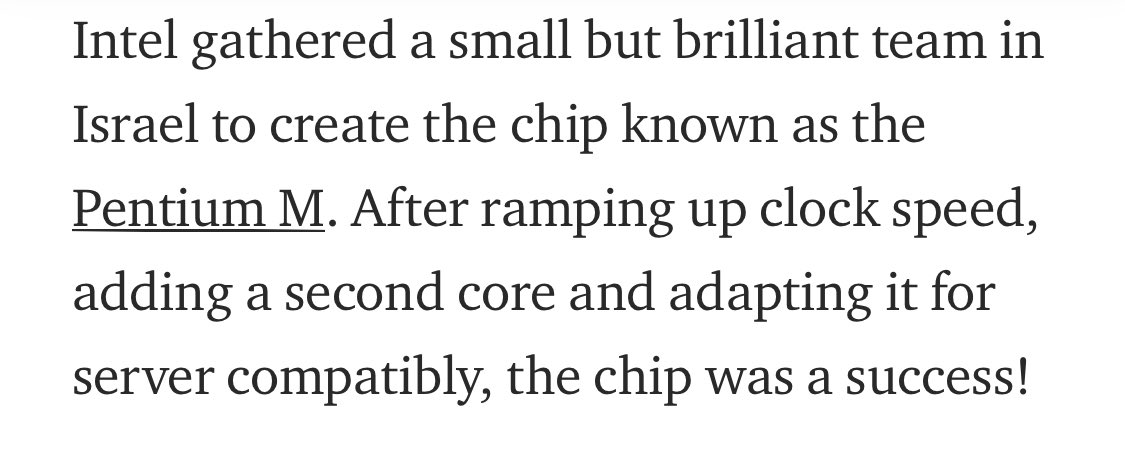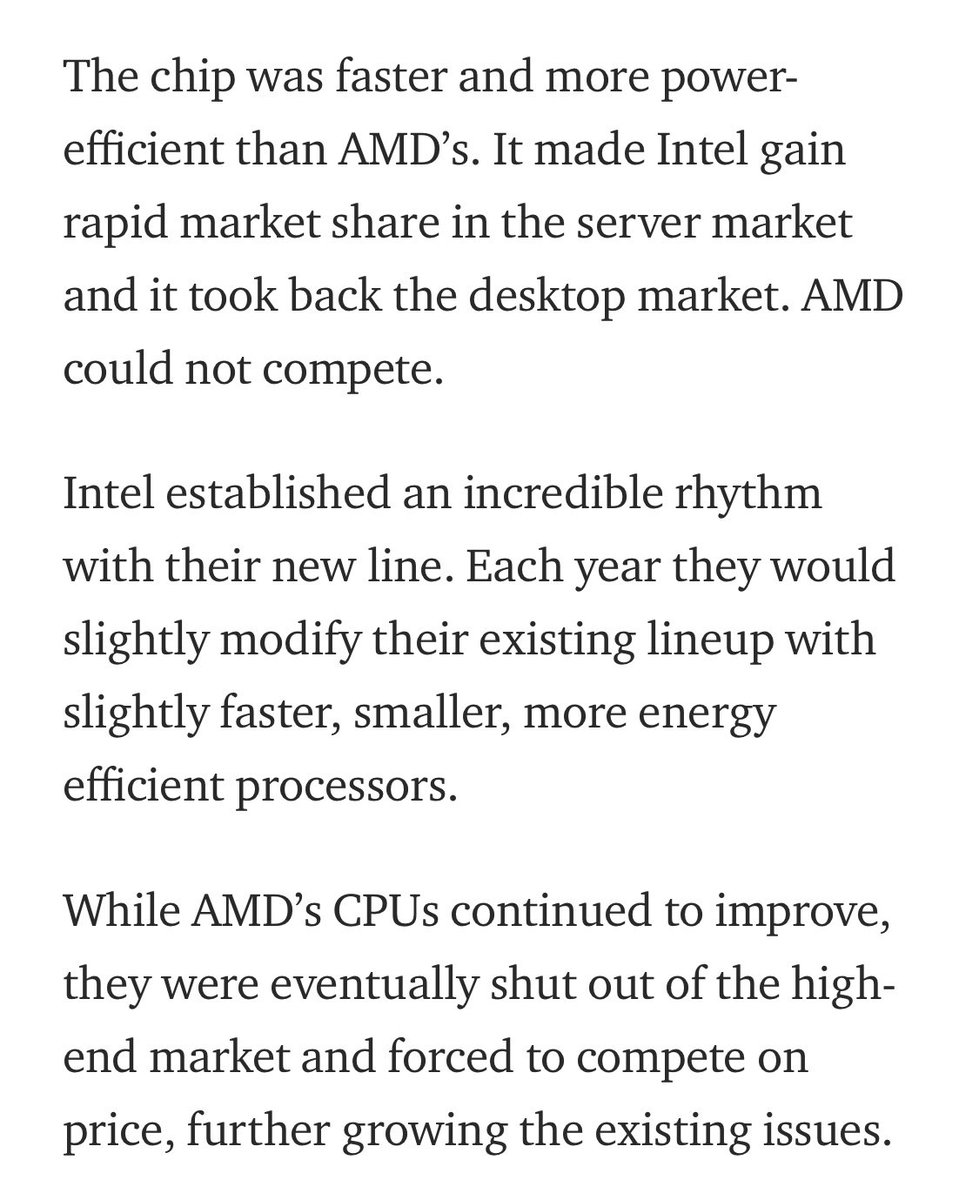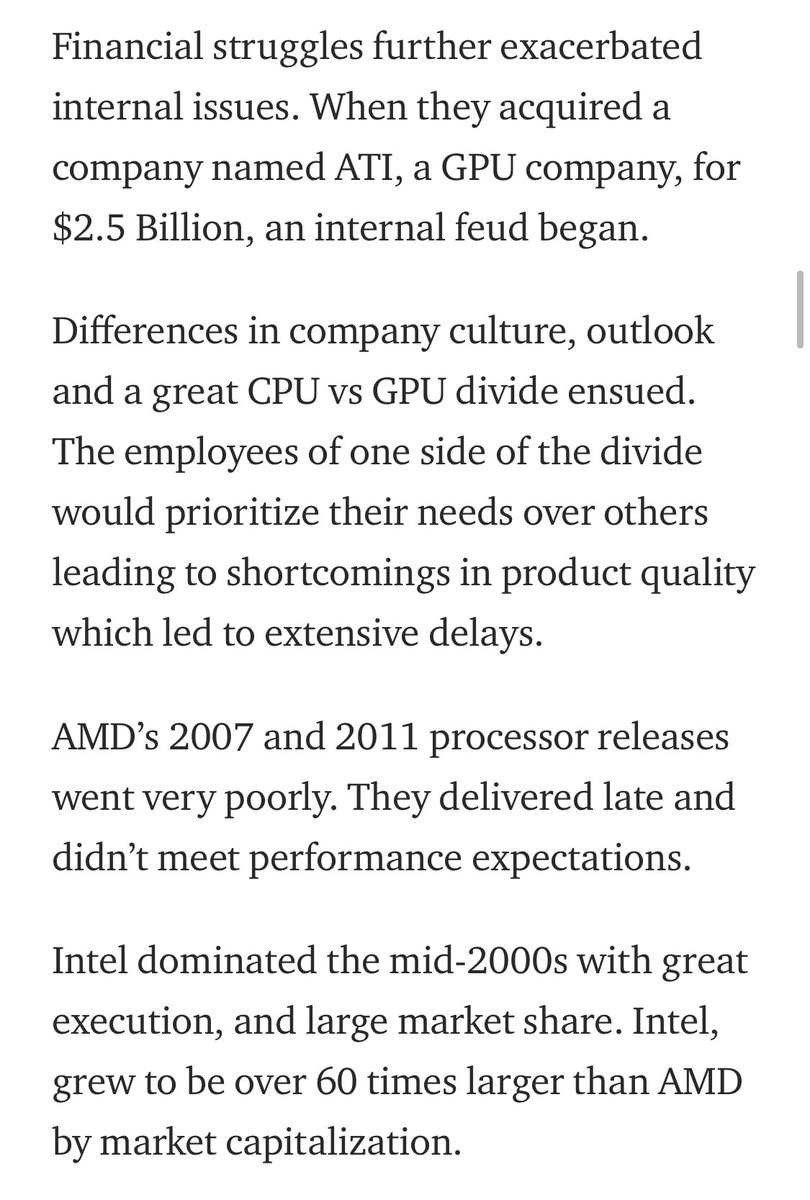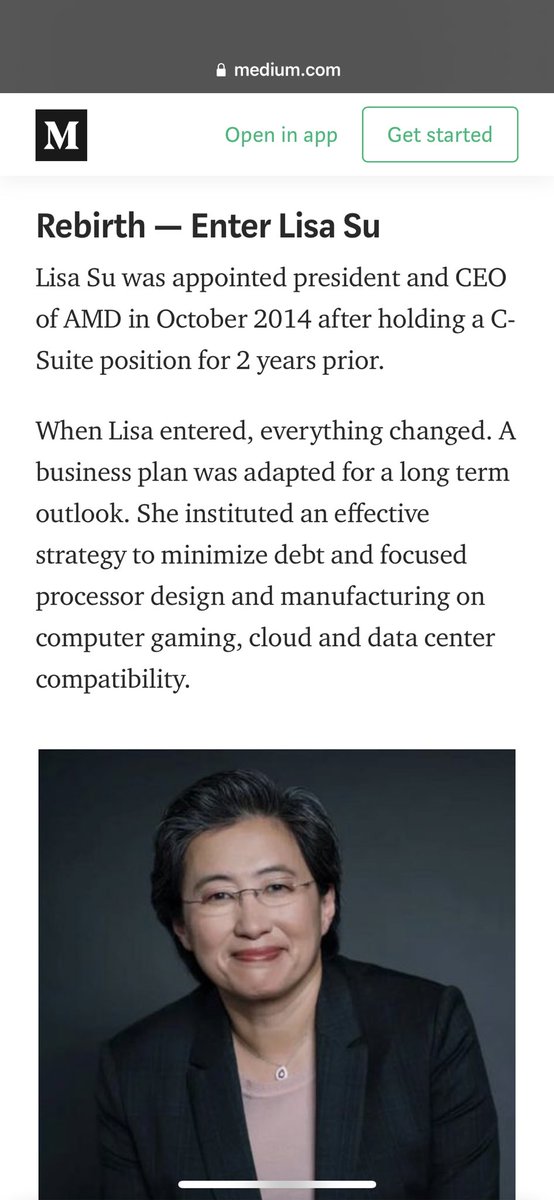I started at AMD in 2001, so I have some experience with this.
Time for a trip down memory row/column/bank. https://medium.com/the-innovation/the-rise-of-amd-69c46148c8fa">https://medium.com/the-innov...
Time for a trip down memory row/column/bank. https://medium.com/the-innovation/the-rise-of-amd-69c46148c8fa">https://medium.com/the-innov...
True. This was before my time but I’ve heard some fascinating tales of the reverse engineering process.
One of my mentors worked on K5. He told me back in 2001 that K5 was the “highest IPC x86 processor to date.” Not mentioned: low frequencies  https://abs.twimg.com/emoji/v2/... draggable="false" alt="😝" title="Squinting face with tongue" aria-label="Emoji: Squinting face with tongue">
https://abs.twimg.com/emoji/v2/... draggable="false" alt="😝" title="Squinting face with tongue" aria-label="Emoji: Squinting face with tongue">
Also, K6 was based off of NexGen, not K7.
Also, K6 was based off of NexGen, not K7.
The K7/Athlon we all know and love was originally called Argon. There was a lot of turmoil at AMD back then and this was when Dirk Meyer was credited for turning the ship around. OG Argon had some problems and Dirk led the project to success.
Also remember that K7 was the first AMD platform, ditching socket compatibility with the competition. https://twitter.com/philparkbot/status/851874438052237313">https://twitter.com/philparkb...
I think the San Jose celebration was the infamous one where Jerry Sanders wore leather pants. That was a month before I started and one of my biggest career regrets  https://abs.twimg.com/emoji/v2/... draggable="false" alt="🙃" title="Auf den Kopf gestelltes Gesicht" aria-label="Emoji: Auf den Kopf gestelltes Gesicht">
https://abs.twimg.com/emoji/v2/... draggable="false" alt="🙃" title="Auf den Kopf gestelltes Gesicht" aria-label="Emoji: Auf den Kopf gestelltes Gesicht">
There’s some missing context regarding K8/Opteron. It’s hard to understate how radical K8 was - new (SOI) process, new x86_64 ISA, new (cHT) interconnect and integrated memory controller. It’s a minor miracle that it made it out the door.
Additionally it took a few years for us to hit that server market share. Remember that the competition at the time was Pentium 4 and Itanium.
Not my area of knowledge but my understanding was that these cores were originally skunkworks projects. Correct me if I’m wrong.
Not mentioned: the Barcelona TLB bug.
Not known to most outsiders: a canceled project pre-Barcelona that caused our roadmap to fall behind.
https://en.wikipedia.org/wiki/AMD_K9 ">https://en.wikipedia.org/wiki/AMD_...
Not known to most outsiders: a canceled project pre-Barcelona that caused our roadmap to fall behind.
https://en.wikipedia.org/wiki/AMD_K9 ">https://en.wikipedia.org/wiki/AMD_...
I can’t comment on the “feud” - sure there were culture clashes but there were deeper technical reasons as to why we slipped further behind.
1) Leadership believed that GPUs would save us and subsequently there was less of a focus on CPUs.
But… if you have awesome integrated GPUs and mediocre CPUs, how do you price them when all benchmarks are CPU focused?
But… if you have awesome integrated GPUs and mediocre CPUs, how do you price them when all benchmarks are CPU focused?
2) Leadership wanted to build several SOCs a year. Consider that up until this point, we had leapfrogging CPU teams that taped out a new core every few years.
The architecture and design infra was not built to be flexible and customizable enough to tape out that many parts.
The architecture and design infra was not built to be flexible and customizable enough to tape out that many parts.
The rest of the piece is an ode to Lisa, and while I agree that she’s a great leader who deserves a lot of credit, there wasn’t any mention of others (which I wouldn’t expect from someone on the outside). Hiring the right people for the job is part of this.
Executing on the console projects was a rough time. I had contemplated quitting and the project schedule was brutal. A lot of us burned out. I couldn’t tell my own wife about the projects.
Wife: how was work?
Me: I’m definitely not working on next gen console chips https://abs.twimg.com/emoji/v2/... draggable="false" alt="😬" title="Grimasse schneidendes Gesicht" aria-label="Emoji: Grimasse schneidendes Gesicht">
https://abs.twimg.com/emoji/v2/... draggable="false" alt="😬" title="Grimasse schneidendes Gesicht" aria-label="Emoji: Grimasse schneidendes Gesicht">
Wife: how was work?
Me: I’m definitely not working on next gen console chips
Jim Keller was a key hire - his superpower is not as a genius architect but in being able to sniff out BS, having a clear vision, and building good organizations (which is harder than you’d think). https://twitter.com/philparkbot/status/1271228810315223040">https://twitter.com/philparkb...
Anyway, lots of people deserve credit (Clark, aka Zen’s dad; @mbsteinman, aka Infinity Fabric’s dad), but my point is that technical prowess means nothing if you can’t organize and function as a team.
One final tidbit - Barcelona was the first project that required us to execute on a schedule. Prior to that no one really cared much about our roadmap.
The success of AMD today depended on us learning from over a decade of experiences and many missteps. /end
The success of AMD today depended on us learning from over a decade of experiences and many missteps. /end

 Read on Twitter
Read on Twitter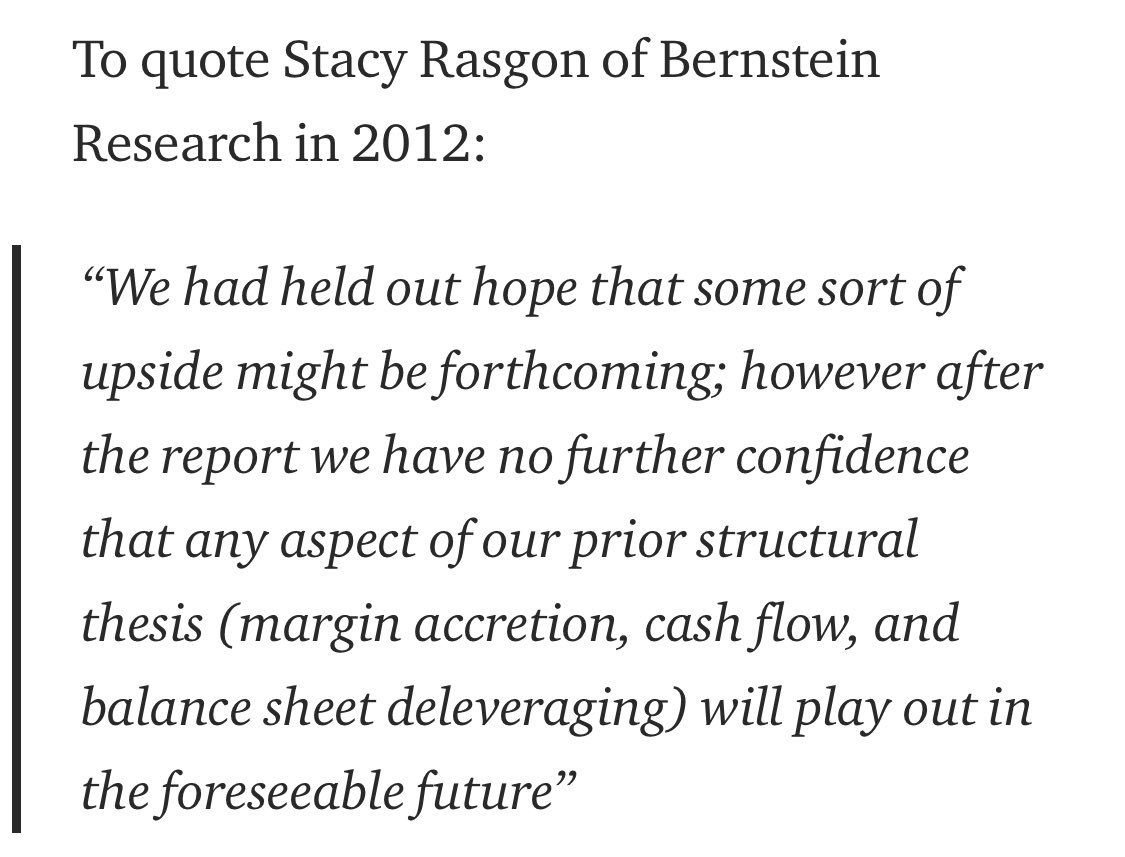
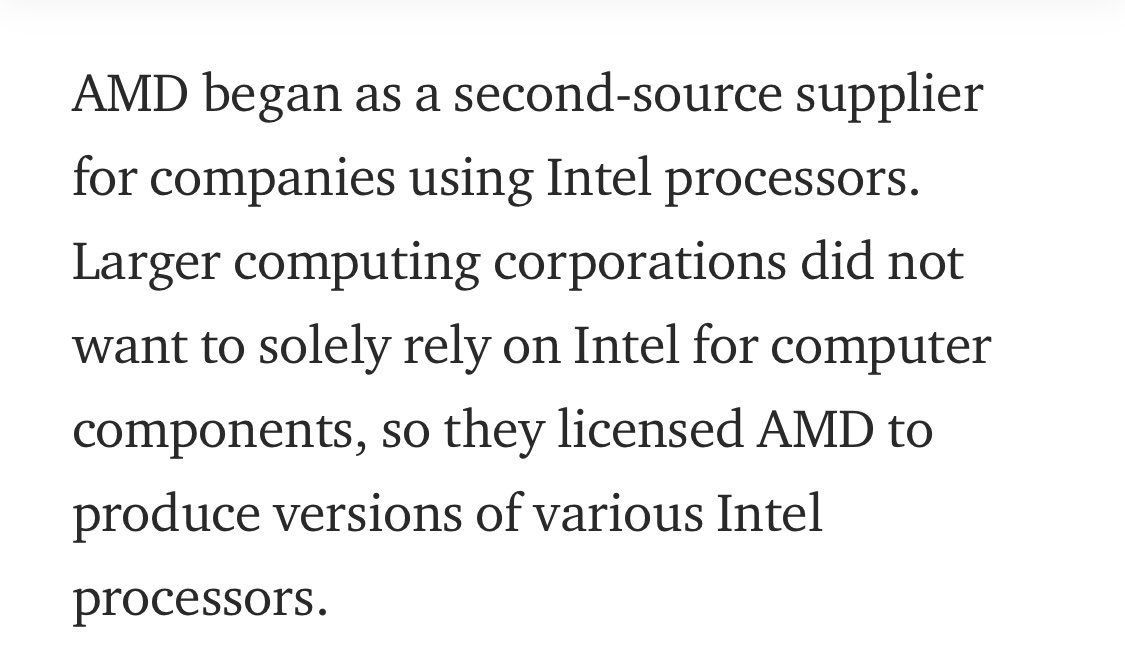
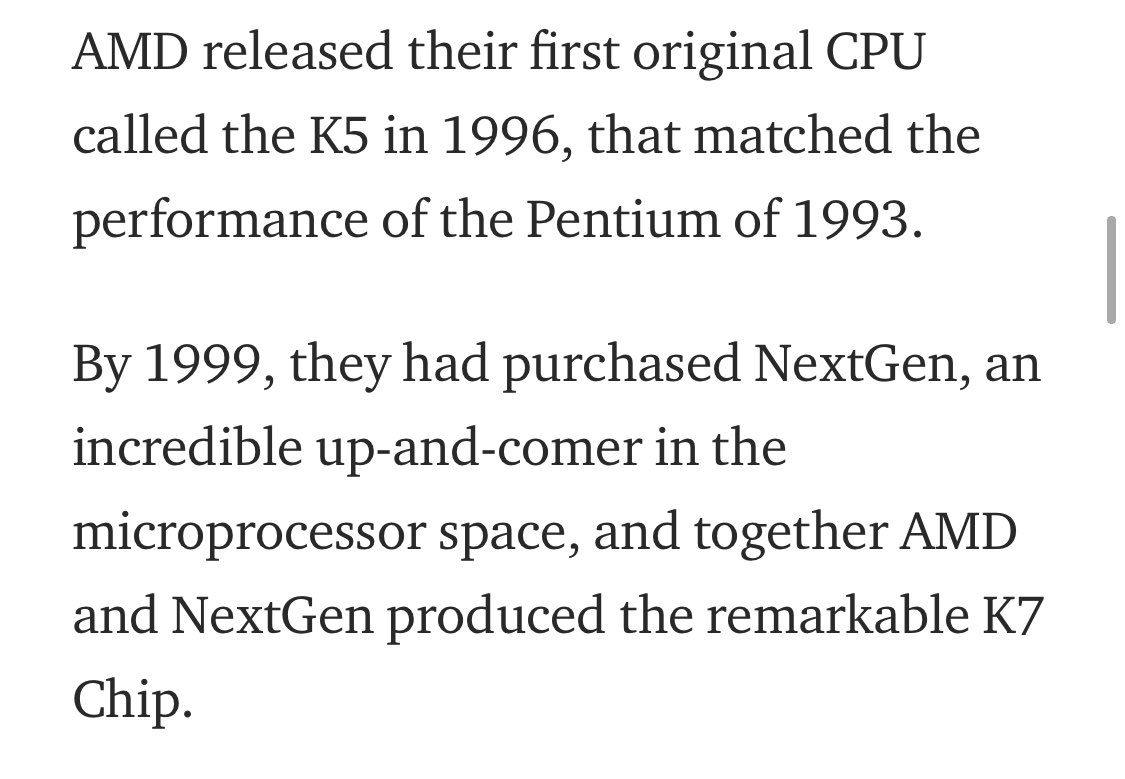 Also, K6 was based off of NexGen, not K7." title="One of my mentors worked on K5. He told me back in 2001 that K5 was the “highest IPC x86 processor to date.” Not mentioned: low frequencies https://abs.twimg.com/emoji/v2/... draggable="false" alt="😝" title="Squinting face with tongue" aria-label="Emoji: Squinting face with tongue"> Also, K6 was based off of NexGen, not K7." class="img-responsive" style="max-width:100%;"/>
Also, K6 was based off of NexGen, not K7." title="One of my mentors worked on K5. He told me back in 2001 that K5 was the “highest IPC x86 processor to date.” Not mentioned: low frequencies https://abs.twimg.com/emoji/v2/... draggable="false" alt="😝" title="Squinting face with tongue" aria-label="Emoji: Squinting face with tongue"> Also, K6 was based off of NexGen, not K7." class="img-responsive" style="max-width:100%;"/>
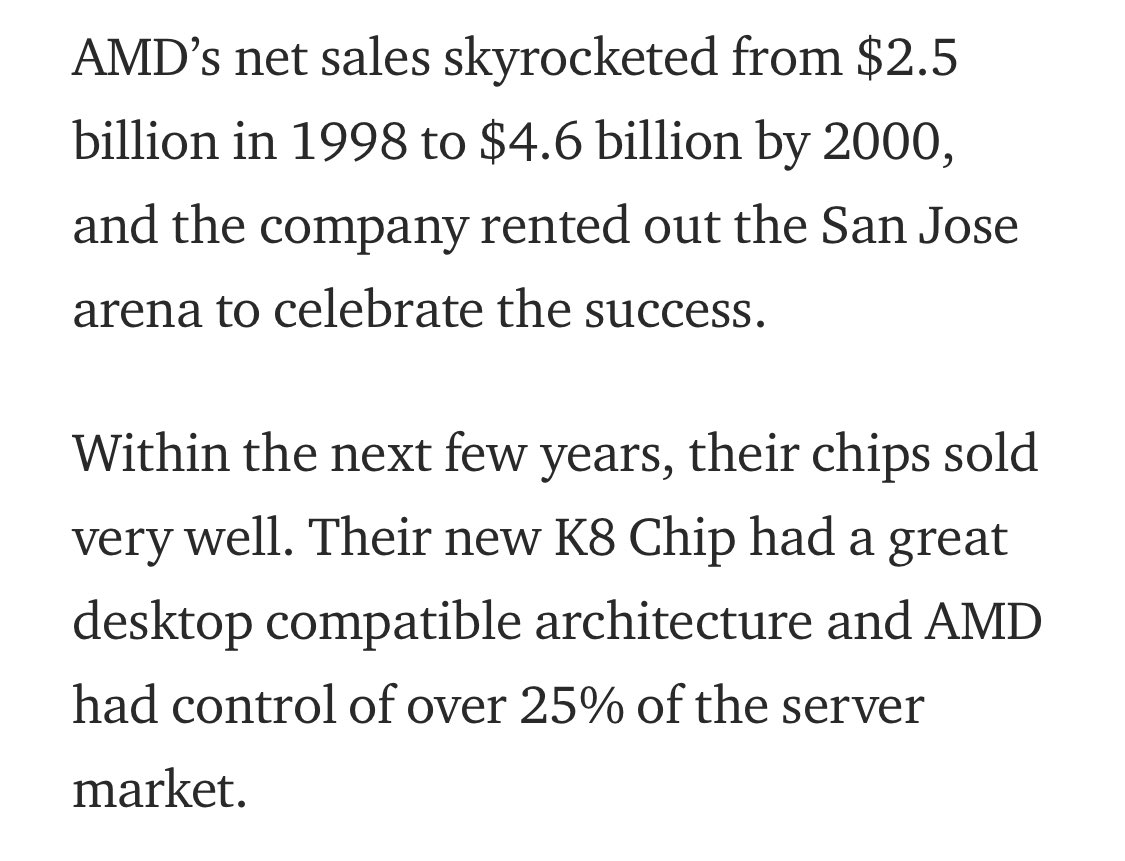 " title="I think the San Jose celebration was the infamous one where Jerry Sanders wore leather pants. That was a month before I started and one of my biggest career regrets https://abs.twimg.com/emoji/v2/... draggable="false" alt="🙃" title="Auf den Kopf gestelltes Gesicht" aria-label="Emoji: Auf den Kopf gestelltes Gesicht">" class="img-responsive" style="max-width:100%;"/>
" title="I think the San Jose celebration was the infamous one where Jerry Sanders wore leather pants. That was a month before I started and one of my biggest career regrets https://abs.twimg.com/emoji/v2/... draggable="false" alt="🙃" title="Auf den Kopf gestelltes Gesicht" aria-label="Emoji: Auf den Kopf gestelltes Gesicht">" class="img-responsive" style="max-width:100%;"/>
